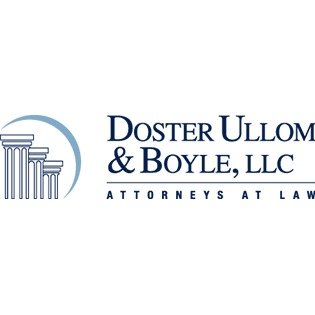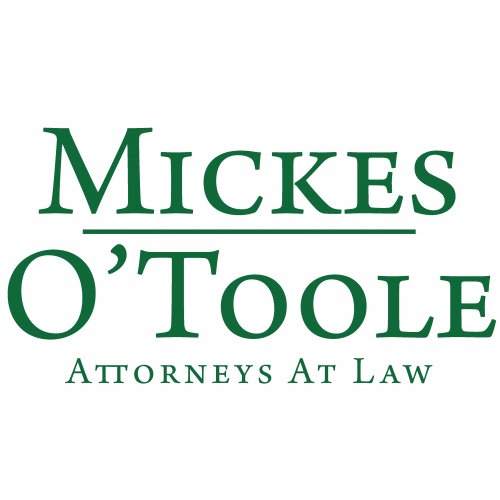Best Sustainable Finance Lawyers in Missouri
Share your needs with us, get contacted by law firms.
Free. Takes 2 min.
Or refine your search by selecting a city:
List of the best lawyers in Missouri, United States
About Sustainable Finance Law in Missouri, United States
Sustainable finance is a growing field that integrates environmental, social, and governance (ESG) considerations into financial services, investment decisions, and business planning. In Missouri, sustainable finance law covers both state and federal legal frameworks aimed at promoting responsible investment, supporting green projects, and ensuring business practices consider sustainability impacts. The state’s businesses, financial institutions, and investors are increasingly engaging with sustainable finance - whether through renewable energy financing, green bonds, ESG disclosure requirements, or regulatory compliance - to align financial objectives with broader social and environmental goals.
Why You May Need a Lawyer
Sustainable finance law can be complex, with overlapping federal regulations, state directives, industry standards, and market expectations. You may need a legal expert in sustainable finance in situations such as:
- Structuring or investing in green bonds or other sustainable financial products
- Complying with ESG disclosure regulations and reporting standards
- Negotiating financing for renewable energy, conservation, or clean technology projects
- Advising financial institutions on risk management related to climate change or ESG issues
- Ensuring compliance with Missouri-specific incentives or requirements for sustainable businesses
- Addressing shareholder activism or integrating sustainability in corporate governance
- Handling disputes concerning greenwashing, misleading claims, or environmental liabilities
Legal guidance helps individuals and organizations avoid pitfalls, meet regulatory requirements, and maximize the benefits of sustainable finance initiatives.
Local Laws Overview
Missouri’s approach to sustainable finance is shaped by a mix of state and federal laws, voluntary standards, and industry participation. Some local highlights include:
- State Incentives and Programs: Missouri offers tax credits and incentives for renewable energy, energy efficiency, and sustainable development, such as the Property Assessed Clean Energy (PACE) program enabling low-cost financing for green upgrades.
- Environmental Regulation: Laws under the Missouri Department of Natural Resources affect projects seeking sustainable finance, especially in areas concerning air, water, and land use.
- ESG Disclosures: While Missouri has no stand-alone ESG regulations, companies operating here may be subject to federal securities rules requiring truthful disclosure about material ESG matters.
- State and Municipal Financing: Many local governments in Missouri use green bonds and similar tools to finance climate resilient infrastructure, public transportation, or conservation projects.
- Public Procurement: Some Missouri municipalities factor sustainability criteria into procurement and contracting, affecting businesses seeking public contracts or incentives.
It is essential to keep current with evolving federal guidance, such as updates from the Securities and Exchange Commission and the Environmental Protection Agency, as these often set the standard for local requirements.
Frequently Asked Questions
What is sustainable finance?
Sustainable finance involves financial activities that account for environmental, social, and governance factors in their planning and investment decisions, aiming for outcomes that are both profitable and responsible.
Are there specific rules for green bonds or sustainability-linked loans in Missouri?
There are no Missouri-specific statutes governing green bonds or sustainability-linked loans, but these instruments must comply with existing securities, contract, and consumer protection laws, as well as voluntary market standards.
Does Missouri require ESG disclosures?
Missouri itself does not have a unique ESG disclosure law, but companies may be required to report material ESG factors under federal securities regulations when operating in or from Missouri.
What incentives does Missouri offer for sustainable businesses and projects?
Incentives may include tax credits for renewable energy, energy efficiency projects, low-interest loans, and participation in local PACE programs which allow property owners to finance improvements through their property tax bill.
Do banks and investment firms face sustainability disclosure requirements in Missouri?
Missouri’s financial institutions primarily follow federal banking and securities regulations. Those with operations in multiple states or doing business with federal agencies may encounter additional sustainable finance requirements.
How does Missouri law address greenwashing?
Greenwashing, or misleading sustainability claims, can violate Missouri’s consumer protection laws and federal standards. Businesses making sustainability claims should have substantiated and verifiable information to prevent legal liability.
Can nonprofit organizations in Missouri access sustainable finance?
Yes, nonprofits may access grants, green bonds, or program-related investments to fund sustainable projects. Legal guidance can help navigate these options and compliance requirements.
What legal risks are involved in sustainable finance transactions?
Risks can include regulatory non-compliance, inaccurate disclosure, contractual breaches, or disputes over ESG performance standards. Legal counsel can help mitigate these risks.
How do federal regulations affect sustainable finance in Missouri?
Federal laws, such as those enforced by the Securities and Exchange Commission and the Environmental Protection Agency, often set minimum compliance standards for organizations in Missouri involved in sustainable finance.
How can individuals support sustainable finance in Missouri?
Individuals can invest in sustainable funds, participate in local green initiatives, support sustainable businesses, and stay informed about relevant local and federal policies.
Additional Resources
If you are seeking more information or assistance, these resources may be helpful:
- Missouri Department of Economic Development - for incentives and business programs
- Missouri Department of Natural Resources - for information on environmental compliance
- Missouri Clean Energy District - for details on PACE financing
- Securities and Exchange Commission - for ESG and green investment regulations
- Local nonprofit environmental organizations - for education and advocacy
- Missouri Bar Association - to find specialized attorneys
- Municipal government offices - for local financing programs and procurement policies
Next Steps
If you need legal assistance in sustainable finance in Missouri, consider the following:
- Identify your specific sustainable finance goals or challenges
- Gather relevant documents such as project plans, contracts, or disclosure reports
- Contact a Missouri attorney specializing in environmental, energy, or financial law with experience in sustainable finance
- Prepare questions regarding regulatory compliance, risk management, and incentives
- Utilize state and local resources to learn about available programs or requirements
- Stay updated on ongoing changes in federal and Missouri state law affecting sustainable finance
Working with qualified legal professionals can help you successfully navigate the evolving landscape of sustainable finance, minimize your risks, and maximize the environmental and financial benefits of your activities in Missouri.
Lawzana helps you find the best lawyers and law firms in Missouri through a curated and pre-screened list of qualified legal professionals. Our platform offers rankings and detailed profiles of attorneys and law firms, allowing you to compare based on practice areas, including Sustainable Finance, experience, and client feedback.
Each profile includes a description of the firm's areas of practice, client reviews, team members and partners, year of establishment, spoken languages, office locations, contact information, social media presence, and any published articles or resources. Most firms on our platform speak English and are experienced in both local and international legal matters.
Get a quote from top-rated law firms in Missouri, United States — quickly, securely, and without unnecessary hassle.
Disclaimer:
The information provided on this page is for general informational purposes only and does not constitute legal advice. While we strive to ensure the accuracy and relevance of the content, legal information may change over time, and interpretations of the law can vary. You should always consult with a qualified legal professional for advice specific to your situation.
We disclaim all liability for actions taken or not taken based on the content of this page. If you believe any information is incorrect or outdated, please contact us, and we will review and update it where appropriate.
Browse sustainable finance law firms by city in Missouri
Refine your search by selecting a city.
















